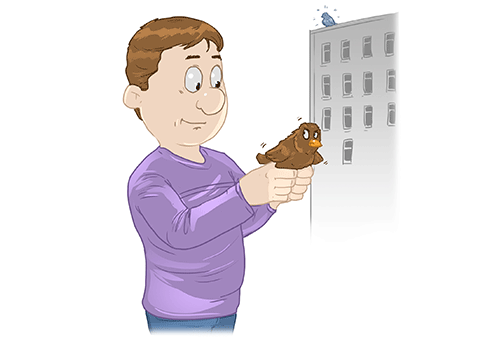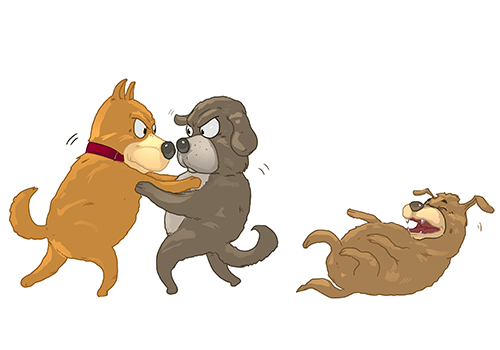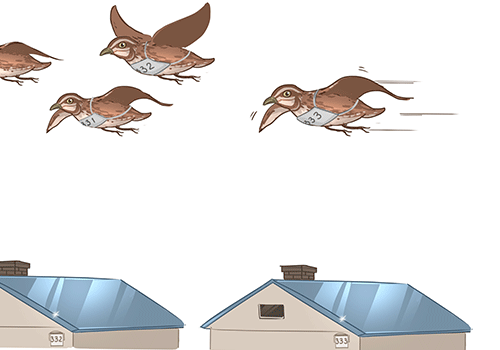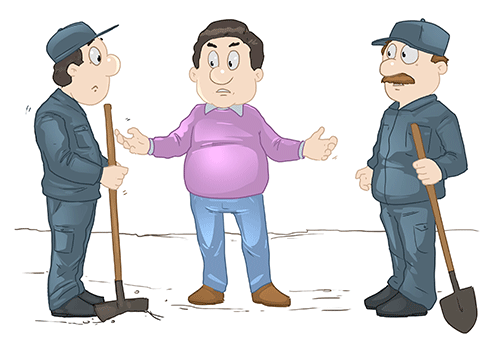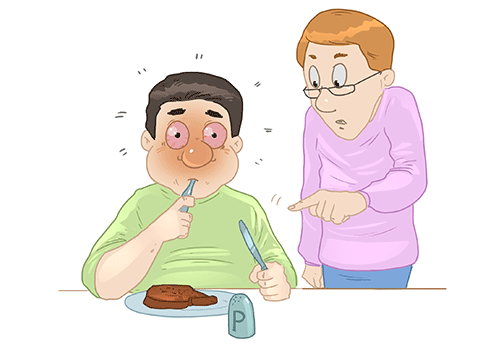Czech
Český jazyk
Český jazyk
about 10M
the Czech republic, EU; can be used in official communication in Slovak Republic
Austria, Germany, Croatia, Slovak Republic
Bulgaria, Croatia, Poland, Romania, Serbia, UK, Ukraine, Argentina, Australia, Brazil, Canada, USA


The official name of the country is Česká republika. There is no official short name.
The country can be divided into several historical regions – the core is called Čechy (this name was used for the whole country), Morava and (Czech part of) Slezsko (which is geographically and administratively a part of Moravia). In a nutshell, Čechy consists of Čechy and Morava, while in turn Morava consists of Morava and Slezsko. The situation is made worse by the adjective český meaning both Bohemian and Czech.
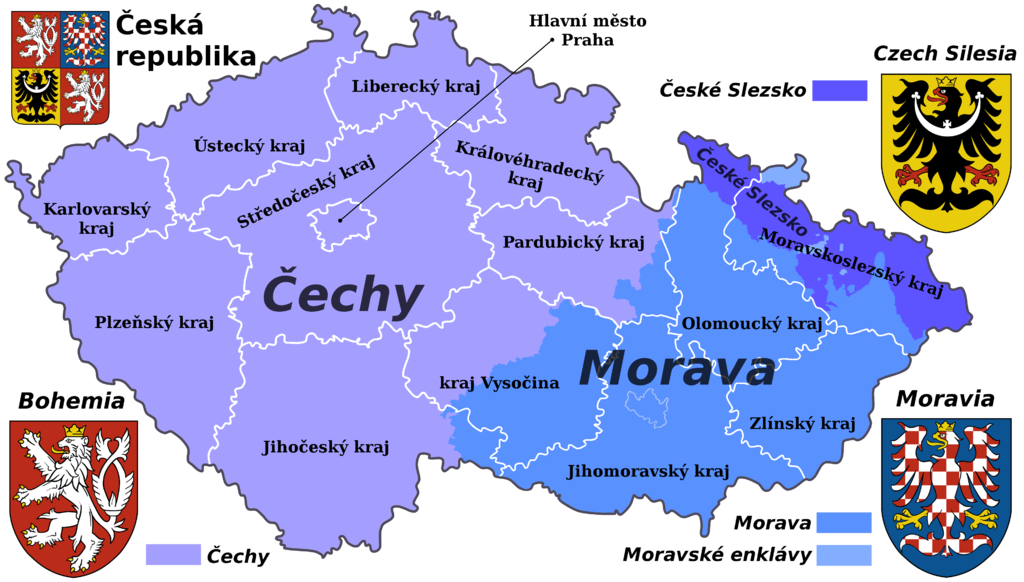
Source: Wikimedia Commons
The breakup of Czechoslovakia in 1993 left the country without an acceptable short name. The most obvious candidate Česko (the left part of Československo) was felt to be unsual. Twenty years later, it is now used more frequently, but is still not generally accepted.
The proposed English name Czechia did not really catch on either. Bohemia is used for the historical country and for the subnational region. Another proposal has been Czech lands (in analogy with the Netherlands), but it is not really shorter, so the only realistic English language name remains the Czech Republic.
First written records (glosses in the Latin manuscripts)
"Old Czech" – first real written records, e.g. Dalimil Chronicle, Alexandreis (epic with knight motives), legends etc.
Orthography stabilization (digraphs)
Orthographia Bohemica by Jan Hus, systematic introduction of diacritics (not adopted at the time)
Náměšťská mluvnice – first printed grammar of the Czech language
Bible kralická (the first and very influencial Bible translation)
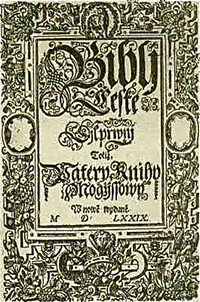
Culmination of standard Czech, development of science literature and chronicles; bratrský pravopis (Brethren orthography)
Grammaticae Bohemicae, ad leges naturalis methodi conformatae, et notis numerisque illustratae ac distinctae, libri duo – first systematic grammar of Czech language by Vavrinec Benedikti
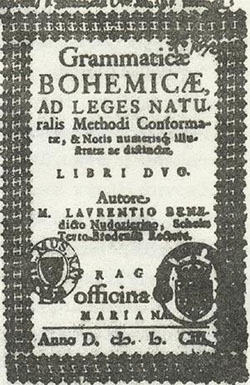
German language made official and equal to Czech in Czech lands
Written literature only in exile
Ausführliches Lehrgebäude der böhmischen Sprache – first modern grammar book of Czech written by Josef Dobrovský, beginning of huge dispute about the orthography
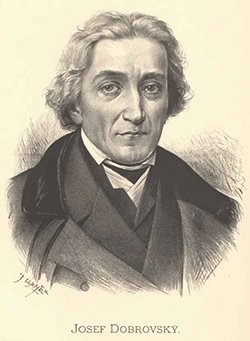
Czech-German Dictionary by Jungmann
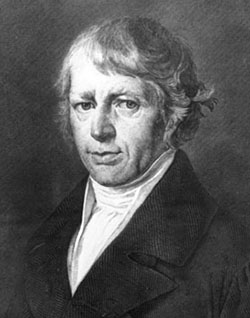
Orthography reform proposed by Pavel Josef Šafařík, since 1849 basically modern orthography is in use
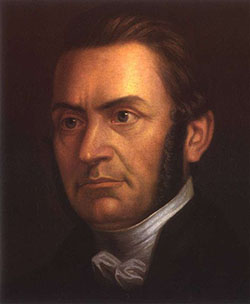
Czech language made official and equal to German in Czech lands
Standardisation of grammar by Gebauer
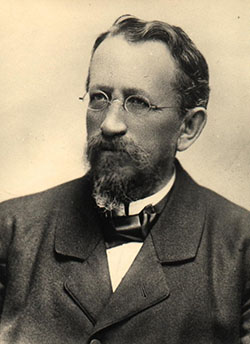
Czechoslovak language is the official language of Czechoslovakia
Split of Czechoslovakia, end of passive "media" bilingualism of Czech and Slovak
There is an interesting visual representation of háček – usually, it is a wedge shape positioned over the letter (ˇ), but in ď, ť it is displayed differently – it looks almost like an apostrophe attached to the right side of the letter. This is just a visual alteration and the diacritic is the same háček. In handwriting, it remains always a regular háček. Since these letters appear only in Slovak and Czech, this issue remains relatively unknown abroad and results in bewildered substitutions and mix-ups (often by introducing stray apostrophes) by foreigners.
The Czech language has some specific letters, such as Ř/ř, which is a raised alveolar non-sonorant trill [r̝]. This phoneme is unique to the Czech language.
There is a dialect continuum from Czech to Slovak, with transitional dialects to Polish („po naszymu“) and Lach dialect. Thus the dialects of both West and East Slavic languages are linked by a chain of intelligibility and they may be classified as part of North Slavic dialect continuum.
Generally, all Czech and Slovak dialects are considered mutually intelligible, though the intelligibility of Czech and easternmost Slovak dialects is very strained.
The case of Czech language stratification is rather specific – there are two widespread variants of the language, literary Czech (spisovná čeština, SČ) and common Czech (obecná čeština, OČ). SČ came into being in the 19th century, when the language went through a phase of revival and increasing influence. The new literary form was heavily influenced by older language from periods of high prestige and vibrant literature. In the meantime, the spoken Czech has evolved and new intradialectal form emerged – OČ.
SČ and OČ are mutually intelligible (and germanisms in OČ have been successfully purged), the main differences are not lexical, but morphological, syntactical and stylistic.
SČ is mostly written, OČ mostly spoken, and it is acceptable (even 'normal') to use OČ in almost all spoken language strata, even by educated people. Indeed, using SČ as a (spontaneous) spoken language is perceived as stiff or preposterous.
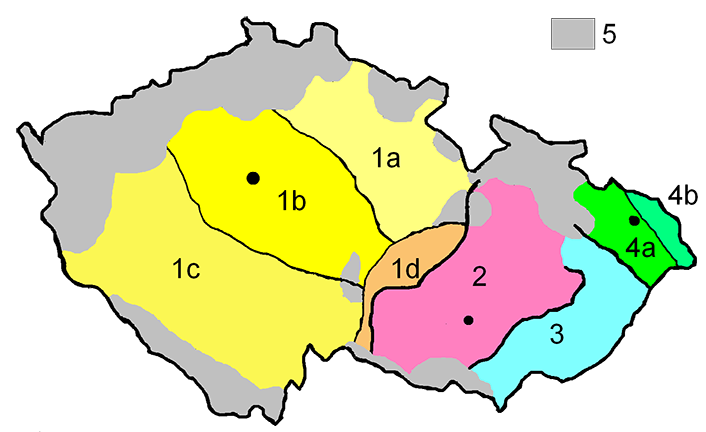
| mill | trolley | large trees | to be | |
|---|---|---|---|---|
| SČ | mlýn | vozík | velké stromy | být |
| OČ | mlejn | vozejk | velký stromy | bejt |
Czech has an extensive case system of 7 cases (nominative, genitive, dative, accusative, vocative, locative, and instrumental). The nouns, pronouns, adjectives, participles and determiners are subject to take different inflected form according to a case they are in.
| Singular | Plural | |
|---|---|---|
| Nominative |
Šéf sem zanedlouho přijede.
The boss will come in a while. |
Velcí šéfové z hlavních televizních stanic měli právo oficiálně vyžadovat spolupráci, kdy chtěli.
Big bosses had the right to ask for an official cooperation whenever they wanted. |
| Genitive |
Zvedl telefon a vytočil číslo svého šéfa.
He answered the phone and dialled the boss's number. |
Mzdy městských šéfů se mohou i výrazně lišit.
Salaries of city bosses can vary considerably. |
| Dative |
Sekretářka Ludmila přinesla šéfovi šálek čaje s citronem.
Secretary Ludmila brought her boss a cup of tea with lemon. |
Šéfům se obchod nezdál dost zajímavý.
Bosses did not find the trade interesting enough. |
| Accusative |
Nejlépe je dotázat se hned na šéfa.
It is best to ask directly for the boss. |
Expanze firem nutí šéfy cestovat.
Growing the business requires bosses to travel. |
| Vocative |
Jasně, šéfe, hned tam zajdu a předvedu ho.
Sure boss, I will go there to get him. |
Pokud nevykonávají řádně svou práci, vy, šéfové, byste se jich měli zbavit.
If they are not doing their work well, you bosses, should get rid of them. |
| Locative |
Záleží to na šéfovi.
It depends on the boss. |
Češi oceňují na šéfech především slušné a upřímné jednání.
Czechs appreciate bosses for polite and honest treatment. |
| Instrumental |
Se svým šéfem nebudu komunikovat přes média.
I will not communicate with my boss through media. |
Pesimismus mezi šéfy firem šíří i nepříznivý stav budoucích zakázek.
Pessimism among corporate bosses is negative for future orders. |
There are three or four grammatical genders in Czech:
Grammatical gender is usually not derivable from the semantic properties of the word, it is only certain that male persons are masculine animate (although there are some exceptions, so that kníže (duke) is neuter in plural), and that females are feminine (there are exceptions here as well, so that děvče (girl) is neuter).
The border between masculine animate and masculine inanimate is somewhat fuzzy – some (masculine) animals and objects are animate in the singular and inanimate in the plural.
People are always animate; slaneček (herring) can be both animate and inanimate in the plural (slanečci, slanečky); bacil (germ) can be both animate and inanimate in the singular and plural, and stroj (machine) is inanimate without exception. Animateness is sometimes used as a semantic disambiguator – android (android) is mostly animate when it is a humanoid robot, but mostly inanimate when it is an operating system.
The word robot was coined by Josef Čapek and used by his brother, writer Karel Čapek in his play R.U.R. (Rossum's Universal Robots), published in 1920 in Czech. The word is based on (Slavic and archaic Czech) robota (labour), though it is possible that Josef was inspired by the use of the word in Slovak, where robiť (to work) is a common verb.
nenávidět (to hate) does not have any negative form. Obviously, Czech are incapable of not hating...






